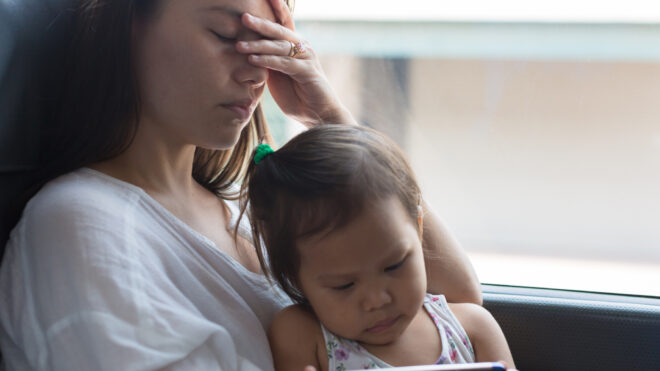When the topic of breastfeeding comes up, it's mostly regarding the controversy surrounding nursing your baby in public or how to get your baby started at the breast and successfully latched on. And of course how long is too long for a mother to breastfeed her baby thanks to that Time magazine cover. What isn't talked about much is the link between breastfeeding and depression. Yes, there's a link. And it's not about being depressed you can't produce enough milk (that's another story for another day). This is about how weaning can create such a change in our hormones that we can experience postpartum depression.
This happened to me. Breastfeeding can be blissful. There were times when nursing my twins had a more relaxing effect on me than a one-hour massage by the most skilled hands. And when my kids weaned themselves, I experienced extreme sadness.
Why don't they want me anymore? Please nurse, please! What is this rejection? Was I eating too much garlic? Does my milk taste bad? How am I supposed to protect them from all the germs they are going to come in contact with when they aren't protected by the goodness in my breast milk? Where did that incredible feeling I got when nursing go? I want it back! Please nurse, please!
Those were just some of my emotions. And I'm not alone. Mamas, if you too are going through this, you aren't alone. We moms are actually NEVER alone. Maybe the twin thing gave me double the emotional issues. Mom and author or Double Time Jane Roper felt the same way when her 13-month-old twin daughters stopped breastfeeding. Her mood went south, she lost motivation and couldn't concentrate. It got worse and worse and she sought help.
More from The Stir: 4 Surprising Health Benefits of Breastfeeding — for Moms
Could it be postpartum depression? Is there breastfeeding side effects? (I'd say yes.) Isn't that just something moms get sort of soon after giving birth? Roper felt it at 13 months after. I felt it at 17 months after. All after stopping breastfeeding. "The intersection between lactation and mood is important, and it is extremely understudied," Dr. Samantha Meltzer-Brody, who is the director of the perinatal psychiatry program at the UNC Center for Women's Mood Disorders, said. "There are definitely people who report mood symptoms associated with lactation."
When it comes to breastfeeding, mostly only "failed lactation" depression was studied. Isn't that horrible? Failed lactation? Don't mind the extreme pressure, mamas! Fail is a four-letter word.
For me, I think the depression I felt when my kids weaned is because I wasn't ready. They were. They stopped. I kept trying. They were done with me. I blamed myself. Blamed having to go back to work and only getting them to the actual breast once in the morning and once before bed. I felt they got used to drinking from a bottle and not from me. I blamed my lack of good production in one breast. I blamed myself. I wanted to feel that incredible oxytocin boost — that falling in love hormone — that I got from breastfeeding. Without it, I was sad. My focus was gone. I was overwhelmed. I was not alone.
And neither are you if you are feeling this way. Talk about your feelings with your partner, your family. See a therapist. Get help.
Do you feel depression from stopping breastfeeding?
Image via Daniel Lobo/Flickr




